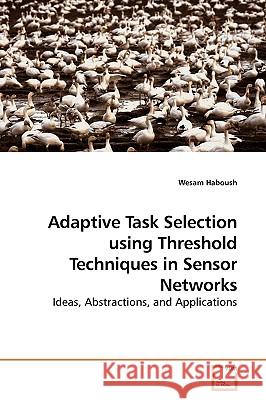Adaptive Task Selection using Threshold Techniques in Sensor Networks » książka
Adaptive Task Selection using Threshold Techniques in Sensor Networks
ISBN-13: 9783639197174 / Angielski / Miękka / 2009 / 296 str.
Sensor nodes, like many social insect species, exist in harsh environments in large groups, yet possess very limited amount of resources. Lasting for as long as possible, and ful lling the network purposes are the ultimate goals of sensor networks. However, these goals are inherently contradictory. Nature can be a great source of inspiration for mankind to nd methods to achieve both extended survival, and e ective operation. This work aims at applying the threshold-based action selection mechanisms inspired from insect societies to perform action selection within sensor nodes. The e ect of this micro-model on the macro-behaviour of the network is studied in terms of durability and task performance quality. Generally, this is an example of using bio-inspiration to achieve adaptivity in sensor networks."
Sensor nodes, like many social insect species, exist in harsh environments in large groups, yet possess very limited amount of resources. Lasting for as long as possible, and fulfilling the network purposes are the ultimate goals of sensor networks. However, these goals are inherently contradictory. Nature can be a great source of inspiration for mankind to find methods to achieve both extended survival, and effective operation. This work aims at applying the threshold-based action selection mechanisms inspired from insect societies to perform action selection within sensor nodes. The effect of this micro-model on the macro-behaviour of the network is studied in terms of durability and task performance quality. Generally, this is an example of using bio-inspiration to achieve adaptivity in sensor networks.











